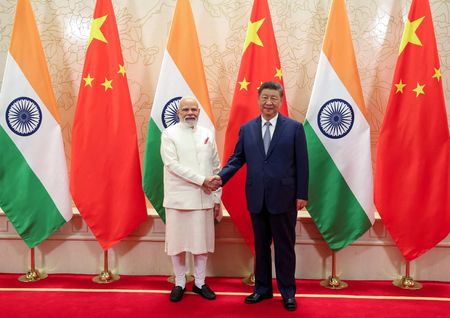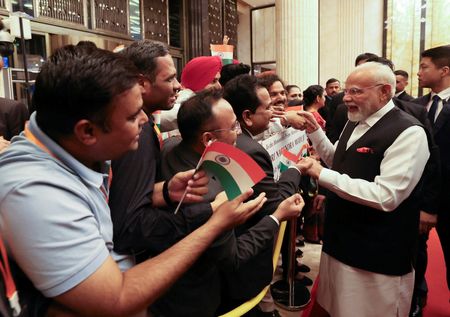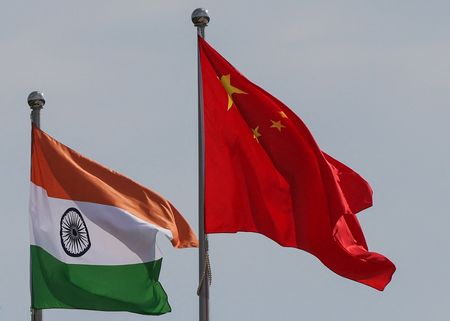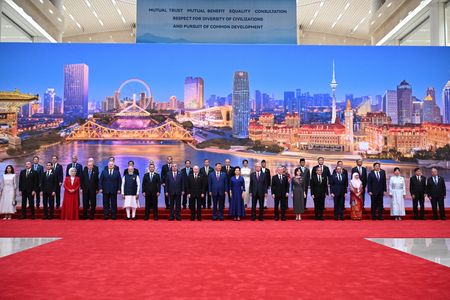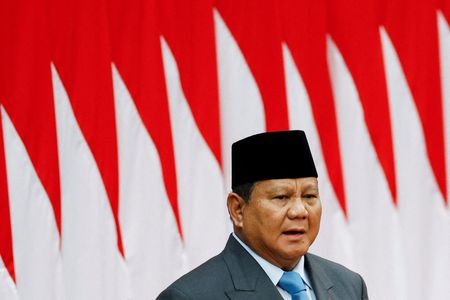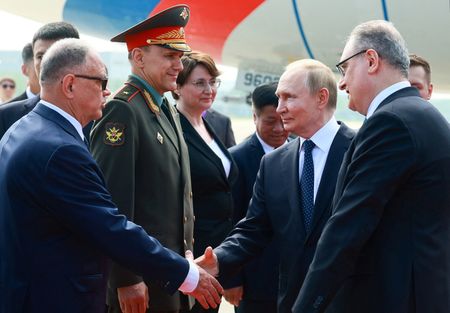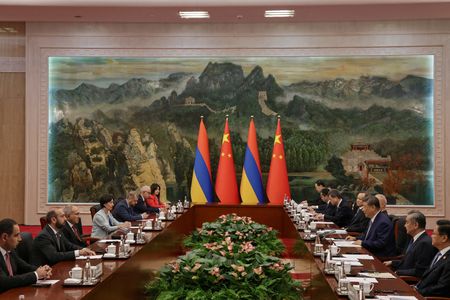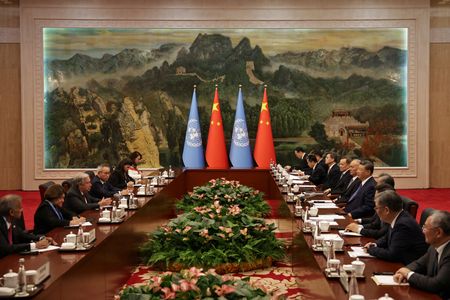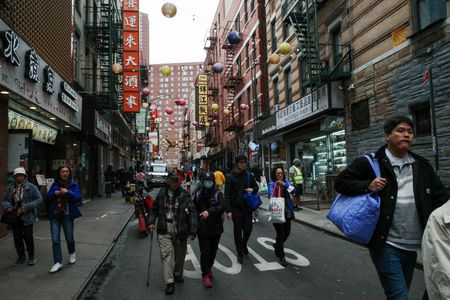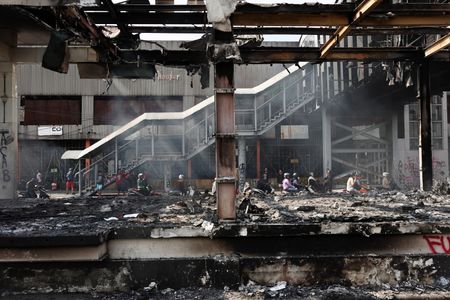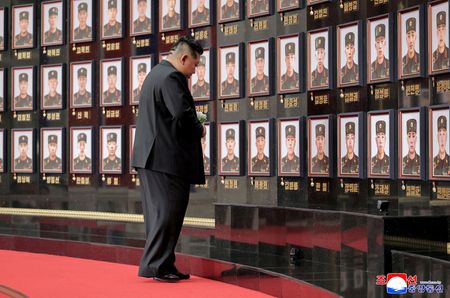By Laurie Chen
TIANJIN, China (Reuters) -Indian Prime Minister Narendra Modi said New Delhi was committed to improving ties with China in a key meeting with President Xi Jinping on Sunday, as both leaders discussed the need to expand trade and investment ties against the backdrop of U.S. tariffs.
Modi is in China for the first time in seven years to attend a two-day meeting of the Shanghai Cooperation Organisation, along with Russian President Vladimir Putin and other leaders from Central, South and Southeast Asia and the Middle East, in a show of Global South solidarity.
The meeting comes days after Washington imposed 50% tariffs on Indian goods in response to New Delhi’s purchase of Russian oil, a move analysts say has pushed Modi and Xi to align against Western pressures.
Modi said India and China pursued strategic autonomy, and their ties should not be seen through the lens of a third country, according to an Indian foreign ministry readout of the meeting.
Modi emphasised reducing India’s trade deficit with China and expanding cooperation on regional and global issues, including terrorism and fair trade practices, the ministry added.
The leaders also discussed expanding common ground on bilateral, regional, and global issues, and challenges like terrorism and fair trade in multilateral platforms, the Indian statement said.
“We are committed to progressing our relations based on mutual respect, trust and sensitivities,” Modi told Xi during the meeting on the sidelines of the summit, according to a video posted on his official X account.
At a reception for the summit Xi told leaders that the SCO now bears “greater responsibilities” for safeguarding regional peace and stability, and for boosting development of various countries, Chinese state news agency Xinhua reported on Sunday.
BORDER ISSUE
Modi said an atmosphere of “peace and stability” has been created on their disputed Himalayan border, the site of a prolonged military standoff after deadly troop clashes in 2020, which froze most areas of cooperation between the nuclear-armed strategic rivals.
He added that an agreement had been reached between both nations regarding border management, without giving details. The neighbours share a 3,800 km (2,400 miles) border that is poorly demarcated and has been disputed since the 1950s.
“We must … not let the border issue define the overall China-India relationship,” Xinhua reported Xi as saying.
China-India ties could be “stable and far-reaching” if both sides focused on viewing each other as partners instead of rivals, Xi added.
Both leaders had a breakthrough meeting in Russia last year after reaching a border patrol agreement, setting off a tentative thaw in ties that has accelerated in recent weeks as New Delhi seeks to hedge against renewed tariff threats from Washington.
Direct flights between both nations, which have been suspended since 2020, are being resumed, Modi added, without providing a timeframe.
China had agreed to lift export curbs on rare earths, fertilisers and tunnel boring machines this month during a key visit to India by China’s Foreign Minister Wang Yi.
China opposes Washington’s steep tariffs on India and will “firmly stand with India,” Chinese Ambassador to India Xu Feihong said this month.
For decades, Washington painstakingly cultivated ties with New Delhi in the hope that it would act as a regional counterweight to Beijing.
In recent months, China has allowed Indian pilgrims to visit Hindu and Buddhist sites in Tibet, and both countries have lifted reciprocal tourist visa restrictions.
“Both India and China are engaged in what is likely to be a lengthy and fraught process of defining a new equilibrium in the relationship,” said Manoj Kewalramani, a Sino-Indian relations expert at the Takshashila Institution think tank in Bengaluru.
However, other long-term irritants remain in the relationship.
China is India’s largest bilateral trade partner, but the long-running trade deficit – a persistent source of frustration for Indian officials – reached a record $99.2 billion this year.
Meanwhile, a planned Chinese mega-dam in Tibet has sparked fears of mass water diversion that could reduce water flows on the major Brahmaputra River by up to 85% in the dry season, according to Indian government estimates.
India also hosts the Dalai Lama, the exiled Tibetan Buddhist spiritual leader whom Beijing views as a dangerous separatist influence. India’s arch-rival Pakistan also benefits from staunch Chinese economic, diplomatic and military support.
(Reporting by Laurie Chen in Tianjin, Shivam Patel in New Delhi, and Liz Lee and Shi Bu in Shanghai; Editing by Michael Perry, Jamie Freed and Louise Heavens)

